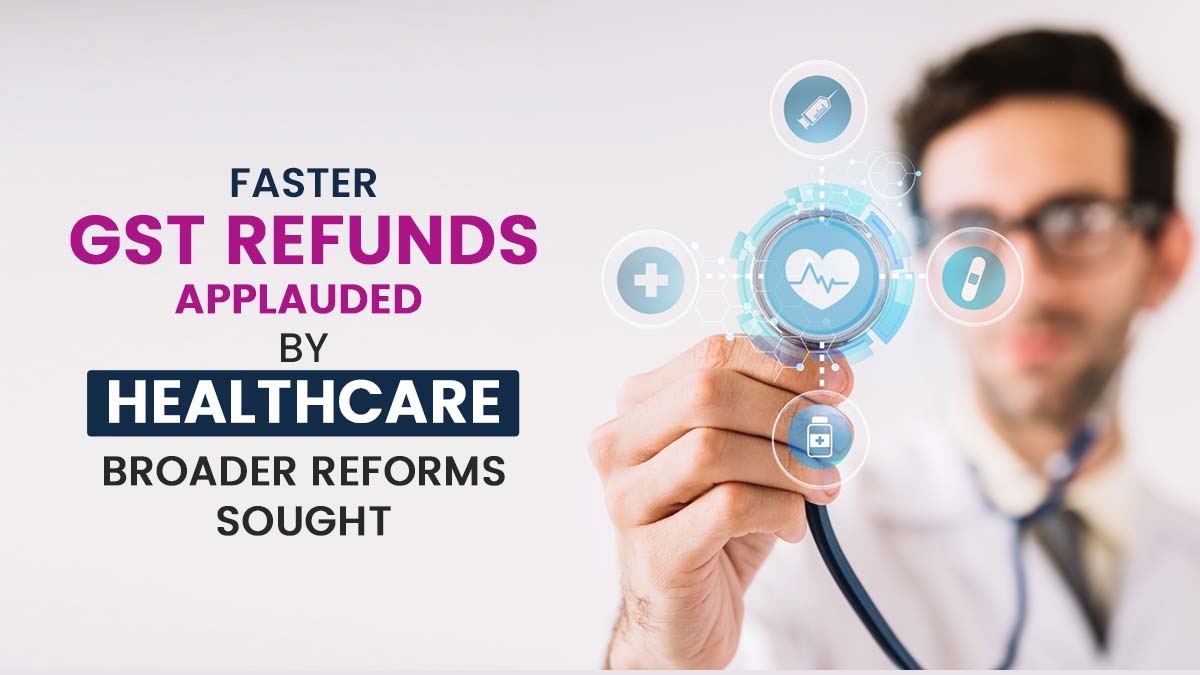
The updated move of the government for fast-track GST refunds has been welcomed by the healthcare and medical device industry of India.
However, it asked that the next big step is to extend refund eligibility to input services as well as capital goods required to get full tax neutrality and facilitate liquidity challenges encountered by manufacturers.
The Central Board of Indirect Taxes and Customs (CBIC) declared that 90% of GST refunds will now be released upfront for low-risk taxpayers. This change covers both export-related cases and those related to the inverted duty structure (IDS). This decision has been praised as a pragmatic and trust-based reform, which is anticipated to rectify the cash flow for exporters and manufacturers.
This initiative addresses ongoing challenges associated with delayed refunds in the industry. However, industry leaders advocate for further enhancements under GST 2.0. They suggest expanding the scope to include refunds for input tax credit (ITC) on various expenses, such as rentals, logistics, warehousing, testing, quality assurance, and other essential services. Additionally, they recommend incorporating refunds for machinery and equipment utilised in the manufacturing process.
The new refund mechanism is particularly beneficial for micro, small, and medium enterprises (MSMEs). However, for true GST neutrality, it is essential to enable refunds of ITC on input services and capital goods.
Manufacturers invest in infrastructure, testing, and logistics—areas that are subject to an 18 per cent GST. permitting the refunds or phased credits for these expenses would alleviate working capital pressure and facilitate reinvestment in innovation and capacity expansion.
Rajiv Nath, the Forum Coordinator of the Association of Indian Medical Device Industry (AiMeD), expressed that the government’s recent initiative signifies a significant enhancement in cash-flow efficiency. He stressed the importance of evolving this initiative into a thorough refund framework that covers the entire manufacturing value chain.
“The next step should include refunds on input services and capital goods. Modern manufacturing relies heavily on machinery, rentals, and specialised services; excluding these from refund eligibility limits the benefits of GST reform,” Nath cited.
Read Also: Sikkim HC Allows INR 4.37 Crore Tax Refund on Unutilized GST ITC After Business Closure
Both AiMeD and Nathealth pointed out that the inverted duty structure, wherein raw materials and components are charged to tax at 18 per cent and finished medical devices are taxed at only 5 per cent, is leading to significant unutilized input tax credit (ITC) balances. India’s competitiveness as a global hub for MedTech manufacturing shall surge from faster and more inclusive refunds, they cited.
Tax officers within the updated directive need to record written reasons when withholding the 90% provisional refund, which is a measure that improves clarity and consistency in tax administration.
For the consultative approach of the finance ministry, GST Council, and CBIC Industry bodies admired and said that the upcoming phase of the reforms needs to align with the founding norms of GST, tax the value added, not the working capital.
India, with timely refunds, expanded eligibility, and a clear process, can unlock investment, employment, and export potential in the healthcare manufacturing sector.